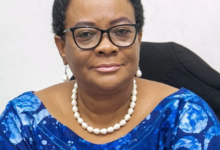“Report inhuman, degrading treatment in prisons to CHRAJ”

Persons in police or prison custody can report to the Commission on Human Rights and Administrative Justice (CHRAJ) for inhuman and degrading treatment.
Apart from torture or maltreatment, persons in custody can also complain to the CHRAJ about lack of basic amenities such as lack of toilet, beds or even quality food for redress.
According to Dr Isaac Annan, former Director of Human Rights at CHRAJ and a Consultant, Law and Governance Consult, provision of such amenities bordered on human rights of which many Ghanaians did not know about.
He was speaking to the Ghanaian Times during a meeting on “Strengthening Ghana Police Service and Civil Society Cooperation Towards Effective Case Management and Improved Accountability”.
It was organised by CHRAJ in collaboration with the German Development Organisation (GIZ).
The overall objective of the two-day meeting aimed at enhancing police service accountability and improving cooperation between the Police Service and Civil Society Organisations(CSOs) leading to a more efficient and effective complaints management system.
Participants, mainly Police and CSOs, were also familiarised with quantitative and qualitative data collected by CHRAJ, CSOs and the media to improve Police Professional Standard Bureau’s (PPSB) complaints handling and management system.
Dr Annan indicated that CHRAJ would investigate any torture or maltreatment cases brought to it and ensure offending officers were dealt with for justice to prevail.
Stressing the need for the empowerment of the average Ghanaian with knowledge about human rights, he urged the CHRAJ to go out there with such education.
Commissioner of CHRAJ, Jospeh Whittal, earlier in a presentation, indicated “if we able to understand the bottlenecks to complaints handling against police misconducts, we would achieve a lot of progress”.
He said CHRAJ as a constitutional body “has oversight responsibility over the Police Service”.
Realising that sometimes there seemed to be a discord between the Police, the CSOs and the Media stemming from misunderstanding of each other’s role, he said, the purpose of the engagement was to ensure how critical accountability institutions could understand each other’s role, point out misunderstandings in order to forge democratic relations together.
Among the topics treated were principles of good administration and accountability (internal and external), human rights-based approach to complaints management, legal and policy framework for ensuring police accountability in Ghana, roles of civil society and the media in ensuring police accountability.
FROM KINGSLEY E.HOPE, KUMASI







